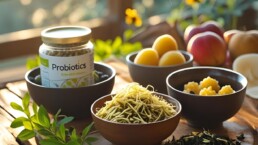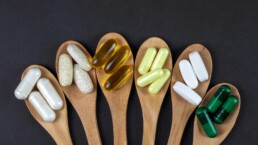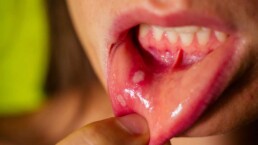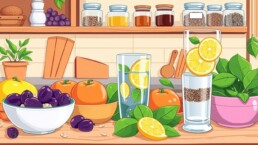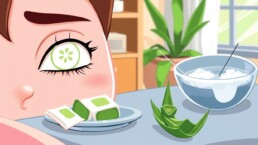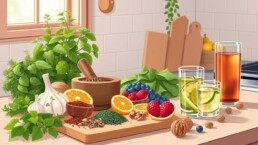Kidney stones are both painful and common, affecting up to 12 percent of Americans. If you’ve had one, there’s a 50 percent chance of another in 10 years. But there’s hope! By following certain tips and strategies, you can lessen your risk.
Table of Contents
ToggleThis guide will cover the why and how of kidney stones. We’ll talk about drinking enough water, eating the right foods, and using herbs and meds. By tweak aing your life a bit, you can safeguard your kidneys and avoid stone trouble.
Knowledge is key for good health. Let’s find out how to steer clear of kidney stones. This way, you can make life better and healthier.
Understanding Kidney Stones and Their Causes
Kidney stones are a common health issue around the world, affecting many people. They are hard deposits that form in the kidneys. These stones can cause a lot of pain as they move through the urinary tract. Knowing about kidney stones and what causes them is very important. It helps us know how to prevent them.
What are Kidney Stones?
Kidney stones are hard mineral and salt deposits. They form inside the kidneys and can move to any part of the urinary tract. This includes from the kidneys down to the bladder. They vary in size, from as small as a grain of sand to as big as a golf ball.
The top kind of kidney stone is calcium oxalate. It makes up about 80% of cases. However, stones can also come from other materials like uric acid, struvite, and cystine.
Common Risk Factors for Kidney Stones
Many things can make someone more likely to get kidney stones. These include:
- Family or personal history of kidney stones
- Dehydration and not drinking enough water
- Certain diets high in protein, sodium, and sugar
- Obesity and other health conditions like diabetes and inflammatory bowel disease
- Certain medications and supplements, such as vitamin C, calcium-based antacids, and laxatives
It’s key to be aware of these risk factors. It can help you work on preventing kidney stones. It’s vital for keeping your urinary system healthy.
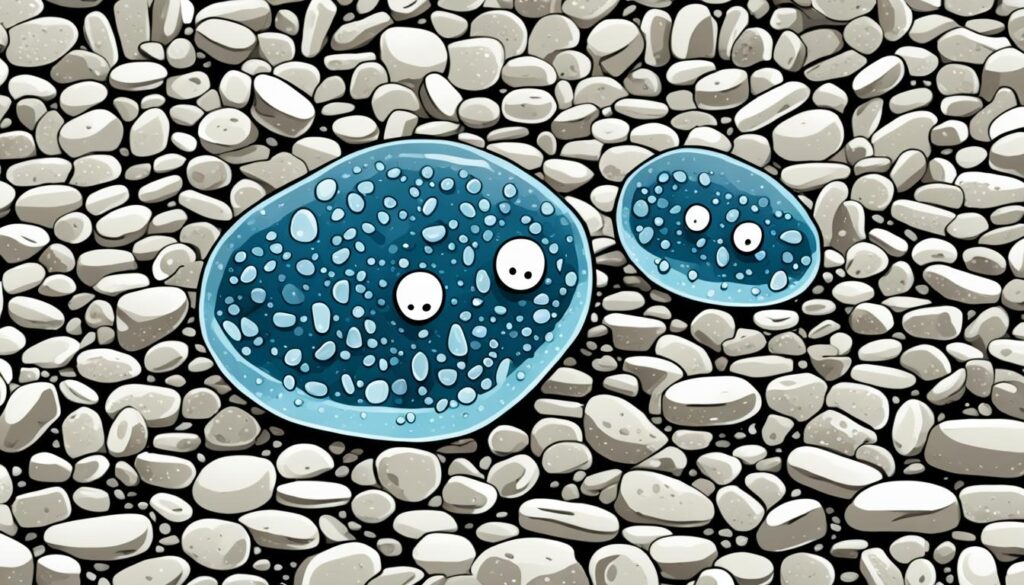
Stay Hydrated: The Key to Preventing Kidney Stones
Staying hydrated helps prevent kidney stones. Dehydration is the main cause because it makes urine concentrate. This makes it easier for stones to form. Drinking plenty of fluids dilutes your urine. This helps to get rid of the stuff that can cause stones.
Aim for Eight Glasses of Water Daily
It’s good to drink at least eight 8-ounce glasses of fluid every day. This is about two liters of urine. It might sound like a lot, but it’s vital to stay hydrated and lessen your stone risk. Carry a water bottle with you to make it easier.
Drink Lemonade and Orange Juice for Added Benefits
Lemonade and orange juice can also help. They have a compound called citrate. Citrate can stop stones from forming by binding with calcium. This keeps the calcium in the urine without forming stones. Adding these drinks to your day is a smart move.
So, keeping hydrated is crucial for avoiding kidney stones. Drink plenty of fluids, especially water, lemonade, and orange juice. This simple step can lower your chances of having to deal with kidney stones.
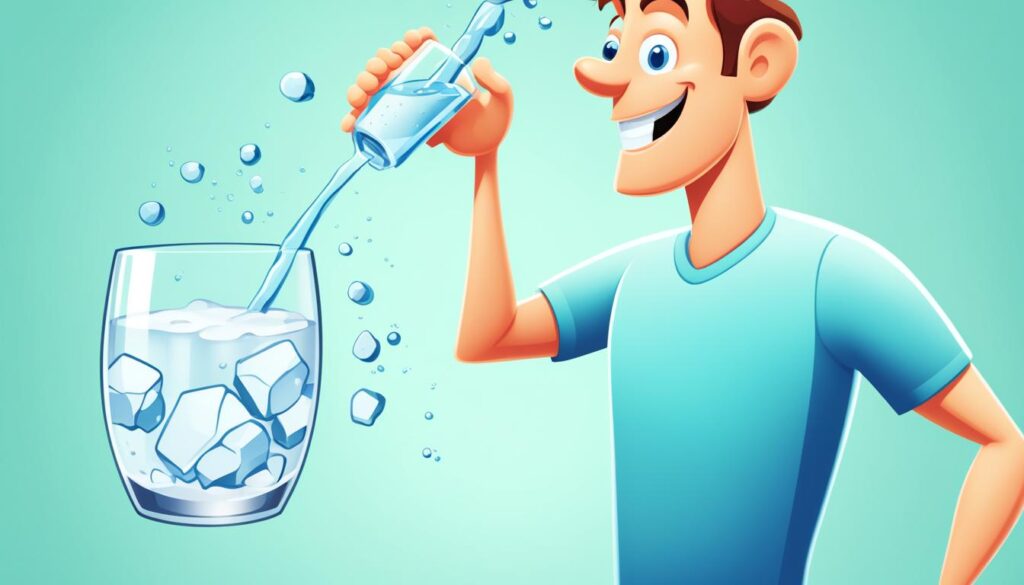
Dietary Changes to Reduce Kidney Stone Risk
To avoid kidney stones, you may need to change what you eat. The most common kind is calcium oxalate. But, cutting out calcium might make these stones more likely. You should eat foods with plenty of calcium, like low-fat milk, cheese, and yogurt. These foods can lower your kidney stone risk.
Increase Calcium-Rich Foods in Your Diet
Some think taking calcium pills is good for your bones. But for kidney stones, it might be bad. It’s better to eat foods with calcium. Include more calcium-rich foods to prevent kidney stones. For example:
- Low-fat or fat-free milk products
- Calcium-fortified foods
- Beans
- Calcium-rich vegetables like broccoli
- Seaweed
Fruits with a lot of citric acid, like oranges and lemons, can also stop stones. Citric acid stops calcium from turning into stones.
Eating more calcium-rich foods can help keep kidney stones away. It’s a big step in staying healthy and free from these painful stones.
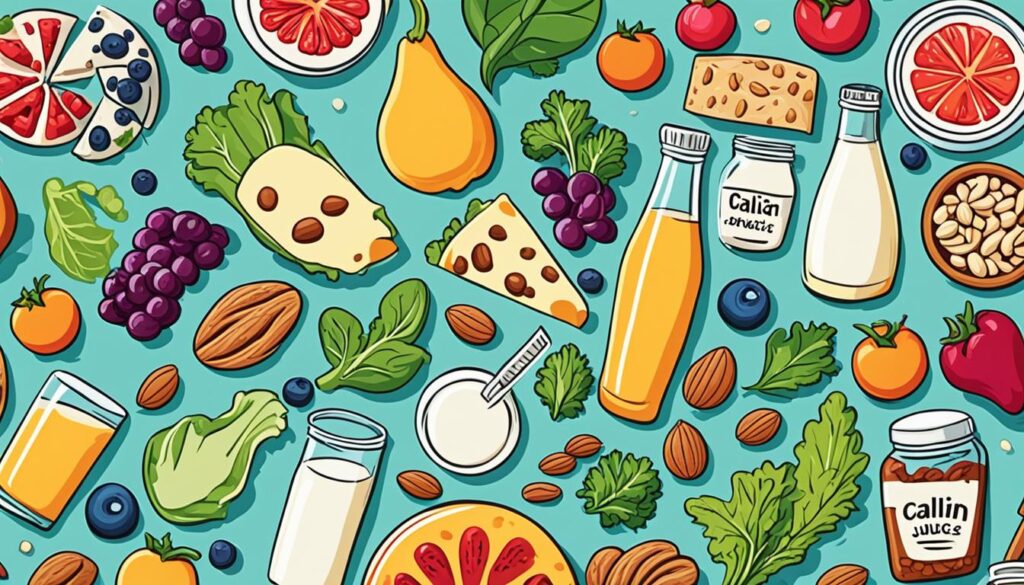
Lower Your Sodium Intake
Worried about kidney stones? Cutting your sodium is key. Eating too much salt makes kidney stones more likely. The Urology Care Foundation says lots of salt means less calcium in your blood. This boosts your risk of getting kidney stones.
For those prone to kidney stones, keep sodium below 2,000 milligrams daily. But many foods are high in salt. This can make reducing sodium tough. Let’s find ways to cut back and lower our kidney stone risk.
- Limit processed foods, canned soups, and canned veggies that are salty. A 3 oz of shrimp has 190 mg of sodium. Meanwhile, a 3.5 oz T-bone steak has 66 mg.
- Skip the soy sauce and other salty condiments. Soy sauce alone can have 1,000 mg per tablespoon.
- Eat more fresh, natural foods. Green beans have just 4 mg of sodium per cup. Broccoli has 20 mg per 1/2 cup, and carrots have 25 mg each.
- Check food labels closely. Choose items with little or no salt if you can.
Lowering your sodium can help you dodge kidney stones. It’s a big step for your kidney’s health. Not just for avoiding stones but for your over wellness.

Limit Oxalate-Rich Foods
To stop kidney stones, avoiding foods high in oxalate is key. Oxalate is a natural thing in many plant foods. It mixes with calcium in your pee, making kidney stones.
Foods High in Oxalates to Avoid
These foods are very high in oxalates. You should eat them less or not at all:
- Spinach
- Chocolate
- Sweet potatoes
- Coffee
- Beets
- Peanuts
- Rhubarb
- Soy products
- Wheat bran
Some might handle oxalates better than others. Mixing high-oxalate foods with foods rich in calcium can help. The calcium stops the oxalate from making stones in your kidneys.
For those who get kidney stones often, eating less than 50 milligrams of oxalates each day is wise. Watching the oxalate-rich foods you eat is a big step in staying stone-free and keeping your bladder healthy.
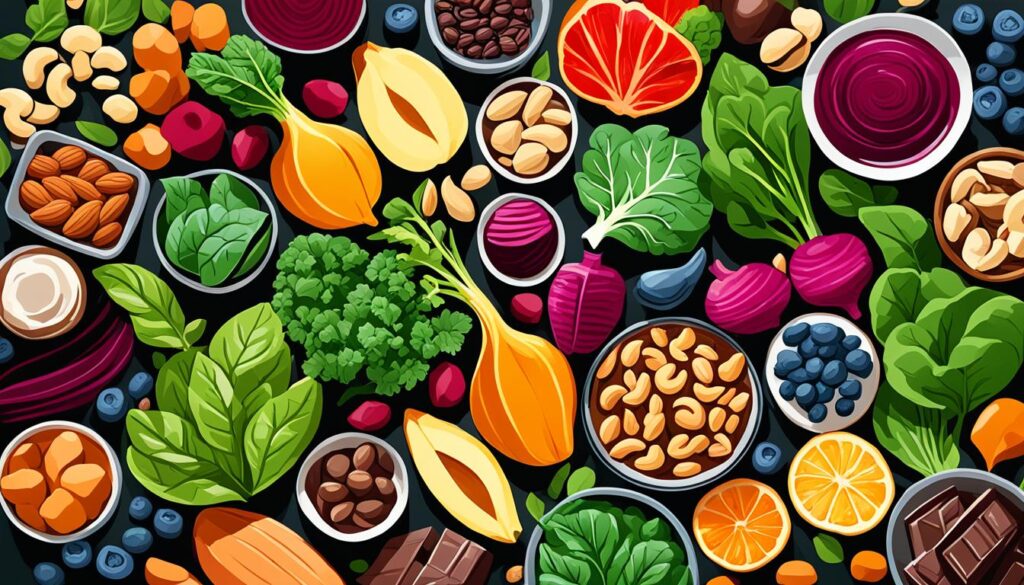
Reduce Animal Protein Consumption
Eating too much animal protein can lead to kidney stones. Foods like beef, poultry, and pork are not good for you. They make your urine too acidic. This can cause kidney stones made of uric acid and calcium oxalate.
Studies say a diet low in protein can lower the risk of kidney stones. If you eat less animal protein, your body will be less acidic. This means you’re less likely to get kidney stones.
Try to eat more protein from plants. Things like peas, beans, nuts, and seeds are good. They have the nutrients you need. Plus, they make your body less acidic. This helps stop kidney stones from forming.

Eating some animal proteins is okay. But, it’s best to eat a diet that’s mostly plant-based. This keeps your kidneys healthy and avoids kidney stones. Remember, it’s all about eating a balanced diet.
How to prevent kidney stones
Kidney stones hurt and can come back often. But, you can stop them. Just do a few easy things and you might avoid kidney stones for good.
To keep kidney stones away, drink lots of water. Try for 8 glasses every day. This makes your pee less strong and washes out stuff that could turn into stones. Adding lemonade or orange juice is also smart. They stop stones from forming because of the acid they have.
- Drink at least 8 glasses of water daily to stay hydrated and dilute your urine.
- Incorporate lemonade or orange juice into your diet to benefit from the citric acid, which can help prevent stone formation.
Eating right helps a lot too. Too much salt makes calcium in your pee more, which is bad for stones. So, cut back on salty stuff. Also, don’t eat a ton of spinach, rhubarb, or nuts. They add to the problem of certain types of kidney stones.
- Limit your sodium intake to less than 2,300 mg per day to reduce the risk of calcium-based stones.
- Avoid or limit your consumption of foods high in oxalates, such as spinach, rhubarb, and nuts.
Following these steps can really help you dodge kidney stones. Stay hydrated, eat wisely, and talk to a doctor if you’re worried. Doing these things can keep you from getting kidney stones and help you stay healthy.
Herbal Remedies for Kidney Stone Prevention
Looking for natural ways to stop kidney stones? Herbal remedies could be a smart pick. One standout is Chanca Piedra, known as “stone breaker.” It may stop calcium-oxalate stones and shrink existing ones.
Chanca Piedra: The “Stone Breaker” Herb
In the Amazon rainforest grows a small, leafy Chanca Piedra plant. It’s been a part of traditional medicine for many years. This plant might help break down and clear up kidney stones, offering a natural aid.
Using caution with herbal remedies is wise, though. They aren’t as tested as drugs. But, some folks say Chanca Piedra has helped them with kidney stones. Always check with a healthcare provider before trying it, especially with other health issues or if you take medications.
Many other herbs show promise in preventing kidney stones. These include:
- A 2020 study in rats found basil might help kidney function. Research in humans is still needed.
- Studies suggest vinegar can lower kidney stone risk.
- Celery extract in rats helped break down stones, as found in a 2019 study.
- Research shows dandelion can be good at stopping kidney stones.
- Wheatgrass might help the body pass kidney stones and cleanse kidneys by boosting urine flow.
- Horsetail is said to have benefits for the urinary system, possibly helping prevent stones. A 2021 review talked about its antibacterial and antioxidant power.
Always talk to your doctor before trying herbs. They may not be safe for everyone or could interact with drugs. Still, adding these natural choices to your plan for avoiding kidney stones could be a good idea.
Medications to Consider for Kidney Stone Prevention
If changing your diet and lifestyle doesn’t stop kidney stones, your doctor might suggest some meds. These drugs help keep the wrong materials from forming stones in your pee.
Here are some meds your doctor might give you:
- Thiazide diuretics: These drugs make it so less calcium ends up in your pee. This can stop calcium stones from forming.
- Citrate supplements: Taking potassium citrate or sodium citrate can up the amount of citrate in your pee. More citrate means less chance of forming stones.
- Allopurinol: If you’re making too much uric acid, this medicine can bring those levels down. It helps stop uric acid stones from forming.
- Cystine-binding agents: Tiopronin or D-penicillamine can help if you have cystinuria. They bind to cystine, stopping cystine stones from forming.
Your doctor will choose the right meds based on the type of stones you get. They’ll also watch how you’re doing and might change your meds as needed.
So, yes, medicines can help prevent kidney stones. But don’t forget the diet and lifestyle changes your doctor suggests. Combining all these steps is the best way to lower your kidney stone risk.
Review Your Current Medications
If you had kidney stones before, or you’re at risk, check your meds. Some drugs make you more likely to get kidney stones. It’s smart to know which drugs can be a problem. Then you can take steps to stay safe.
Drugs like decongestants, diuretics, and protease inhibitors can cause trouble. So can anticonvulsants, steroids, and chemotherapy drugs. They mess with the stuff in your urine, which can lead to kidney stones.
- Decongestants can make too much uric acid in your pee, causing uric acid stones.
- Diuretics, or “water pills,” change the levels of calcium and other pee elements, which can lead to stones.
- Protease inhibitors, used for HIV/AIDS, can up the uric acid in your body and increase stone risk.
- Anticonvulsants, for epilepsy, raise your chance of getting calcium stones.
- Steroids like prednisone mess with pee minerals, also causing stone trouble.
- Chemotherapy affects pee processing, potentially leading to kidney stones.
If you’re on any of these meds, talk to your doctor. They can help you switch to safer drugs or change your dose. Being careful with your meds can help avoid the pain of kidney stones.
Explore Preventative Medications
If you get certain kidney stones a lot, your doctor might give you special medicines. These meds can lower the stuff that makes stones form in your pee. The kind of medicine changes based on the kind of stones you usually get.
Options for Calcium Stones
If you often have calcium stones, your doctor might suggest using thiazide diuretics or taking phosphate. Thiazide diuretics make you take in less calcium from your food and pee out less. Phosphate can stop calcium from building up into stones.
Options for Uric Acid Stones
For uric acid stones, you may get a drug named allopurinol (Zyloprim). This drug cuts down on the uric acid in your pee. This makes it harder for uric acid stones to form.
Options for Struvite and Cystine Stones
Struvite stones can happen after a UTI. For these, you might need to take antibiotics long-term to stop the stones. If you have cystine stones, captopril can help lower the cystine in your pee.
It’s key to talk with your doctor about the kind of stones you get and your risks. They can then choose the right meds for you. By using the right meds and making some lifestyle changes, you can lower how often stones come back. This is good for your health.
Lifestyle Factors to Address
Dealing with lifestyle factors is key in stopping kidney stones. If you have a health problem like IBD, or if you often get UTIs, or if you are obese, talk to a doctor. They can help you manage these conditions. Being active and staying healthy is great to lower your kidney stones’ risk.
Manage Underlying Conditions
About 40% of people who get kidney stones have a family history. This shows genes play a big part. Men in their middle years can get kidney stones the most, but anyone can. So, can things like diabetes, gut surgery, too much parathyroid hormone, and kidney problems.
Stay Active and Maintain a Healthy Weight
Being overweight means you might get more kidney stones. Keep a good weight and be active to lower the risk. Exercise not only helps you stay fit but also keeps your kidneys strong.
Taking care of lifestyle factors is vital. Watch your health problems and keep active to help lower your kidney stone risk. This way, you can avoid kidney stones and have a healthy life.
Conclusion
Kidney stones are a tough and painful problem. But making small changes in how you live can really lower your risk. The main way to stop kidney stones is to look at your whole life. This means taking care of things like not drinking enough water, what you eat, and any health problems you may have.
To keep kidney stones away, drink a lot of water every day. Cut down on how much salt and meat you have. And eat more foods rich in calcium. Also, some herbs and medicines might help, but talk to a doctor first to see what’s best for you.
Did you know that more than half of Americans could get a kidney stone? And it can lead to other serious health issues. By being proactive and following the tips in this article, you can look after your kidneys. This way, you can live without the pain and troubles of kidney stones.
FAQ
What are the common types of kidney stones?
The most common kind of kidney stone is made of calcium oxalate. There are also stones from uric acid, struvite, and cystine.
What are the risk factors for developing kidney stones?
Risk factors include a family history of kidney stones and not drinking enough water. Eating lots of salty and oxalate foods can also increase your risk. Health conditions such as obesity or inflammatory bowel disease make it more likely too.
How much water should I drink to prevent kidney stones?
Drink at least eight glasses of water each day. This can help you make about two liters of urine. Lemonade and orange juice are good too, because they have something called citrate, which stops stones from forming.
Should I avoid calcium-rich foods if I’m prone to kidney stones?
No, you shouldn’t avoid calcium. Eating calcium-rich foods can lower your chance of getting kidney stones. Foods like low-fat milk, cheese, and yogurt are good choices.
How can I reduce my intake of oxalate-rich foods?
To cut down on oxalates, you can eat less spinach, chocolate, and coffee. Also, try to avoid sweet potatoes, beets, peanuts, and rhubarb. Using less soy products and wheat bran can help too.
Does a high-protein diet increase my risk of kidney stones?
Yes, too much animal protein can be bad. Beef, poultry, fish, and pork can make your urine more acidic. This leads to different kinds of kidney stones. Try not to eat too much of these meats to lower your risk.
Are there any herbal remedies that can help prevent kidney stones?
Yes, Chanca Piedra, or “stone breaker,” is an herb that people use. It can stop calcium-oxalate stones from forming. And it might make stones you already have smaller.
Can certain medications increase my risk of developing kidney stones?
Some medicines can raise your chance of getting kidney stones. These include decongestants, diuretics, and certain drugs for seizures or cancer. If you take these, ask your doctor how to lower your risk.
What type of preventative medications may be prescribed for kidney stones?
The medication you get depends on what kind of stones you get. For calcium stones, your doctor might give you thiazide diuretics or supplements. Uric acid stones could need allopurinol (Zyloprim). Struvite stones might be treated with long-term antibiotics, and captopril may help with cystine stones.
How can I address lifestyle factors to prevent kidney stones?
If you’re at risk because of certain health problems, it’s key to manage them well. Work with your doctor on how best to do this. Staying active and keeping a healthy weight is important for everyone to avoid kidney stones.
Source Links
- How to Prevent Kidney Stones: 9 Ways
- Kidney stones: Learn More – Preventing kidney stones
- Kidney Stone Prevention
- Kidney Stones
- Preventing kidney stones: Hydration, reducing salt intake, and more
- prevention of kidney stone disease
- The kidney stone diet: Foods to include and avoid
- Kidney Care: The Power of Low-Sodium Eating
- Low Oxalate Diet: Overview, Food Lists, and How It Works
- Foods High in Oxalates
- 10 Home Remedies for Kidney Stones
- Tips on How You Can Avoid Kidney Stones
- Kidney Stone Disease: An Update on Current Concepts

This article is medically reviewed by Dr. Chandril Chugh, Board-Certified Neurologist, providing expert insights and reliable health information.
Dr. Chandril Chugh is a U.S.-trained neurologist with over a decade of experience. Known for his compassionate care, he specializes in treating neurological conditions such as migraines, epilepsy, and Parkinson’s disease. Dr. Chugh is highly regarded for his patient-centered approach and dedication to providing personalized care.

